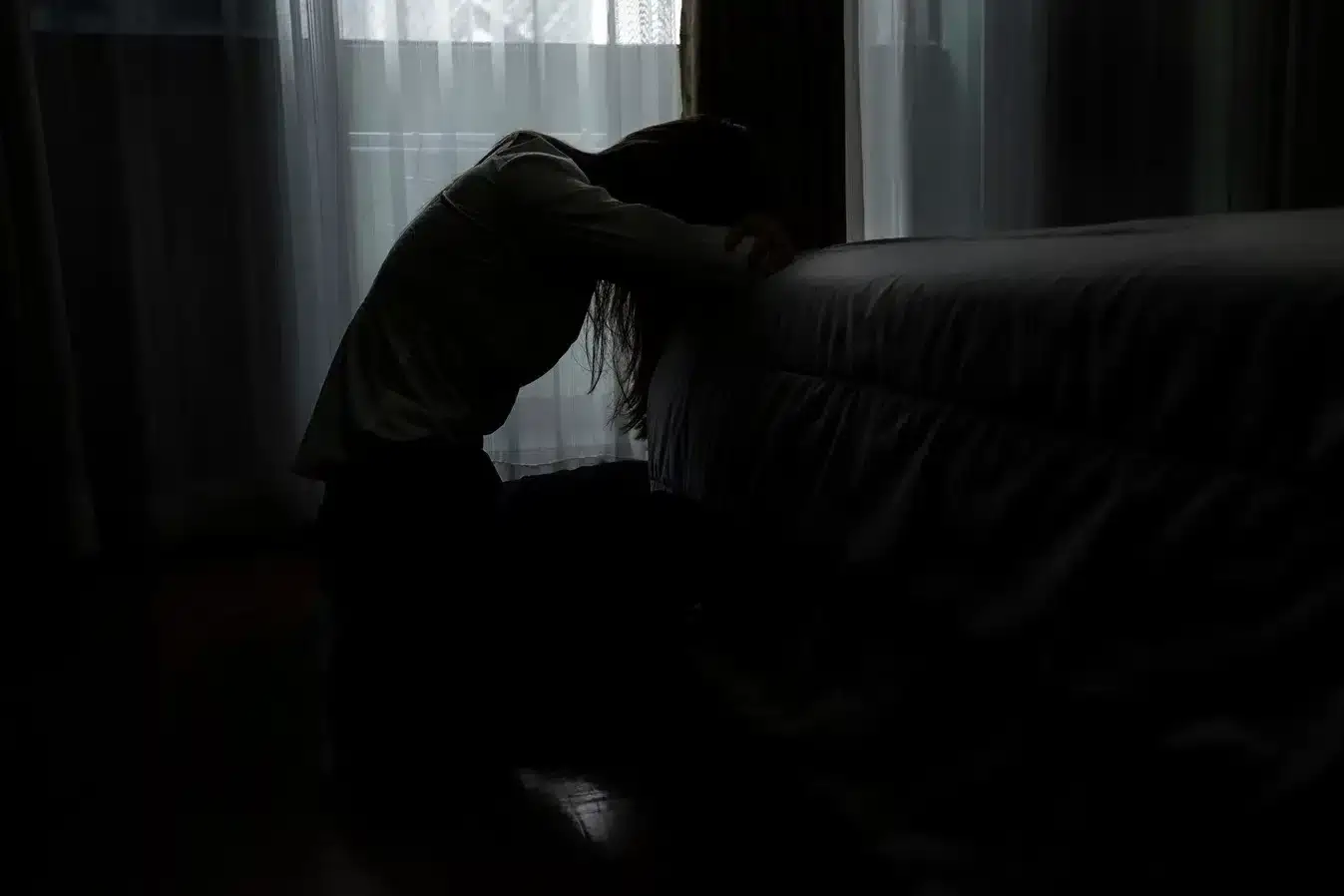How Can I Enforce a Custody Order If My Child Isn’t Returned?

Dealing with child custody issues can be difficult, especially when the other parent doesn’t follow the court’s orders. At Farias Law Firm, PLLC, we understand how stressful and frustrating this can be. Our Houston child custody attorneys are here to help you through the legal process, ensuring your rights as a parent are protected and your child’s well-being is a priority. We handle these sensitive situations carefully and precisely, offering the support you need to enforce your custody order.
Start protecting your child’s future by contacting Farias Law Firm, PLLC today. Our custody lawyers are ready to help you resolve these issues quickly. Call us at 713-226-7999 to set up a meeting and let us assist you in regaining control and ensuring the best outcome for your family.
Understanding Your Custody Order
A child custody order is a legal document that outlines who takes care of the child and when. This order specifies who has physical custody, the visitation schedule, and any other terms necessary to ensure the child’s well-being.
As part of the custody process, parents must submit a parenting plan. This plan outlines each parent’s rights and responsibilities, including how decisions about the child’s education, health care, and religious upbringing will be made. Parenting time specifies when the child will spend time with each parent. This schedule ensures the child has a stable routine and a strong relationship with both parents. Knowing the specifics of your custody arrangement will help you handle any disputes more effectively.
4 Immediate Steps to Take When Your Child Isn’t Returned
Picture the anxiety and fear that grip you when your child is with the other parent, and the agreed-upon joint custody time for their return has long passed. You keep checking the clock, filled with questions and worries about your child’s safety and well-being. The other parent isn’t answering calls or messages, leaving you feeling uncertain and helpless. As you deal with these emotions, it’s important to act quickly to address this breach of your custody order and ensure your child’s safe return.
If your child isn’t returned as planned, follow these steps to address the situation:
- Document Everything: Record the time and place of the expected return, any attempts to contact the other parent, and the names of any witnesses. This information is crucial if you need to involve the police or take legal action.
- Communicate with the Other Parent: Try to talk to the other parent to encourage them to return the child. Keep these conversations polite and record all interactions, as this evidence can help your case.
- Prioritize Your Child’s Safety: If you believe your child is in immediate danger, contact local police to ensure their safety.
- Seek Legal Advice for Less Urgent Situations: For situations that are not immediately dangerous, focus on documenting the violation and seeking legal advice as your main steps.
Role of Law Enforcement in Custody Disputes
 Law enforcement can help with a child custody order, but their role is limited to certain situations. If there is a clear breach of the custody order, police can help transfer the child between parents. This is important when quick action is needed to keep the child safe. For example, if the custodial parent believes the non-custodial parent is doing things that could harm the child, like neglect or exposing them to danger, police may need to step in to ensure the child’s safety.
Law enforcement can help with a child custody order, but their role is limited to certain situations. If there is a clear breach of the custody order, police can help transfer the child between parents. This is important when quick action is needed to keep the child safe. For example, if the custodial parent believes the non-custodial parent is doing things that could harm the child, like neglect or exposing them to danger, police may need to step in to ensure the child’s safety.
Police cannot get involved in disagreements over what the custody order means or change it. They can’t enforce visitation schedules unless there is a court order that specifically includes police involvement. Also, they can’t decide where a child should live or change any existing custody arrangements. Police usually step in only when there is a clear violation or danger to the child.
If you think your child is in immediate danger, contact local law enforcement. They can help ensure your child’s safety and enforce the custody order within legal limits. For other custody issues, you may need to talk to a child custody attorney to find legal ways to enforce the order through the court.
Filing a Motion to Enforce Custody in Houston
If the custody order is repeatedly violated, and your child’s other parent won’t return them, you might need to take legal action by filing a motion to enforce custody. This starts with submitting the original motion to the district clerk’s office in the county where the custody order was issued. The motion must include detailed documentation of the non-compliance.
Consulting with a Houston child custody attorney from Farias Law Firm, PLLC beforehand can help you understand the legal details involved. We can guide you through the visitation enforcement process, ensuring that your motion is complete and that all necessary documentation is included. In some cases, we may advise filing a Writ of Habeas Corpus to legally require your child’s return.
A Writ of Habeas Corpus is a legal order that requires a person holding someone in custody to bring the individual before a court or judge. In the context of child custody, it can be used to compel the return of a child who is being unlawfully withheld by the other parent.
You may need to use a Writ of Habeas Corpus when the non-custodial parent refuses to return the child, violating the existing custody arrangement. In this situation, filing a Writ of Habeas Corpus allows the court to review the circumstances and issue an order for the child’s return, ensuring compliance with the custody arrangement and prioritizing the child’s safety and well-being.

Collecting Evidence for Non-Compliance
Gathering strong evidence of non-compliance can help successfully enforce a custody order. Here is a list of important types of evidence to collect:
- Communication Logs: Record all interactions with the non-compliant parent, including calls, texts, and emails.
- Witness Statements: Gather statements from any individuals who were present during the missed exchanges. If others were present during the missed exchanges, their accounts can provide additional support.
- Receipts: Keep any receipts or proof of your presence at the agreed-upon location for the exchange.
- Visitation Journal: Maintain a detailed record of each attempt to exchange the child, noting dates, times, and any relevant details.
Typically, at least three documented violations are needed to establish a pattern of non-compliance. This thorough documentation will strengthen your motion to enforce custody and show the other parent’s disregard for the court order.
Preparing Your Case for Court
Once you’ve gathered your evidence, the next step is to prepare your case for court. This involves organizing your evidence to clearly demonstrate how the other parent is not following the custody order while emphasizing the best interests of your child. A well-prepared case can significantly influence the outcome of the hearing.
At Farias Law Firm, PLLC, we know family law cases can be tricky, and our experience with family court judges helps us understand what they focus on. To get your case ready, our team carefully organizes your evidence to make sure it addresses the judge’s concerns. We aim to clearly show how the other parent is not following the custody order and why it’s important for your child’s best interests.
Our custody lawyers are dedicated to standing up for your rights and your child’s well-being. We offer full support throughout the visitation enforcement process, from writing and filing a motion to representing you confidently in court. Our goal is to present a strong case that convinces the court to enforce the custody order properly.
Legal Consequences for Non-Compliant Parents
The legal system takes non-compliance very seriously because it disrupts the child’s stability and well-being. Courts aim to maintain the best interests of the child and ensure that both parents adhere to the agreed-upon custody arrangements. Non-compliance not only risks legal consequences but can also damage the parent-child relationship, affecting the emotional well-being of the child.
Parents who don’t follow custody orders can face serious legal problems. If found in contempt of court, they might face jail time. Other consequences include fines, changes to custody rights, or even imprisonment for custodial parents.
Non-compliant parents may also have to pay the other parent’s legal fees or make up for missed visitation time. Repeated violations can lead to changes in custody, possibly giving sole custody to the non-custodial parent.
In severe cases, the court may order supervised visitation or limit the non-compliant parent’s access to the child until they demonstrate a willingness to comply with the custody order. This can include attending parenting classes or counseling sessions to address the underlying issues leading to non-compliance. By taking these corrective actions, the court aims to encourage the non-compliant parent to adhere to the custody agreement. These measures ensure that the child’s best interests are maintained and that both parents fulfill their responsibilities as outlined in the custody order.

Alternative Dispute Resolution Options
Alternative dispute resolution (ADR) offers several ways to resolve custody disputes without the need for contentious court proceedings. These options can be beneficial when dealing with a situation where the child’s other parent refuses to return them. Some different forms of ADR include:
- Mediation: Mediation involves a neutral third-party mediator who facilitates discussions between both parents. The goal is to reach a mutually agreeable solution regarding custody and visitation issues. Mediation can be a less adversarial process, allowing parents to communicate openly and focus on the best interests of their child, potentially leading to a quicker resolution than court litigation.
- Arbitration: In arbitration, a neutral arbitrator acts similarly to a judge, making decisions after hearing both parties’ arguments. While more formal than mediation, arbitration is generally faster and less expensive than traditional court proceedings. The arbitrator’s decision is typically binding, meaning both parents must adhere to the outcome, which can provide a definitive resolution to custody disputes.
- Collaborative Law: This process involves each parent hiring a specially trained attorney, and all parties agree to work together to resolve custody issues without going to court. Collaborative law focuses on negotiation and problem-solving, to reach a settlement that prioritizes the child’s well-being. If the process fails, the involved attorneys must withdraw, encouraging parents to commit to finding a resolution.
- Parenting Coordination: This involves a neutral third party, often a mental health professional or attorney, who assists parents in implementing their custody order and resolving disputes. Parenting coordinators help reduce conflict by facilitating communication and ensuring compliance with the custody agreement.
By using ADR methods, parents can address custody disputes in a more cooperative and less adversarial manner, which can be beneficial for maintaining a positive parent-child relationship.
How Farias Law Firm, PLLC Can Assist You
 At Farias Law Firm, PLLC, our family law attorneys understand the Texas Family Code and can guide you through the legal details of your custody order. We know how important it is to maintain a healthy parent-child relationship and are committed to protecting your parental rights.
At Farias Law Firm, PLLC, our family law attorneys understand the Texas Family Code and can guide you through the legal details of your custody order. We know how important it is to maintain a healthy parent-child relationship and are committed to protecting your parental rights.
Simplifying the Visitation Enforcement Process
Dealing with a non-compliant parent can be difficult. Our team helps with the visitation enforcement process, from filing a motion to enforcing the court order. We prepare your case with thorough documentation of non-compliance and present a strong argument to the court. We aim to protect your child’s welfare and ensure the custody order is followed.
Comprehensive Legal Support
- Representation in Court: We represent your interests in court, advocating for your rights and your child’s best interests.
- Parenting Plan Negotiations: Our attorneys can help negotiate and modify parenting plans to fit your family’s needs.
- Mediation and Alternative Dispute Resolution: We prioritize negotiation and mediation to resolve disputes amicably, avoiding court battles when possible. However, if these methods do not lead to a satisfactory resolution, we are fully prepared to take your case to court to ensure the best outcome for you and your child.
Contact Us for Child Custody Enforcement in Houston
Every family situation is different, and we tailor our legal approach to meet your needs. Whether dealing with a custodial parent who won’t comply or needing to change a custody arrangement, we are here to help. Our commitment to our clients is strong, and we strive for the best possible result for you and your child.
Don’t let custody disputes affect your family life. Let us help you enforce your custody order and protect your child’s well-being. Take the first step towards solving your custody issues and securing a stable future for your family.

